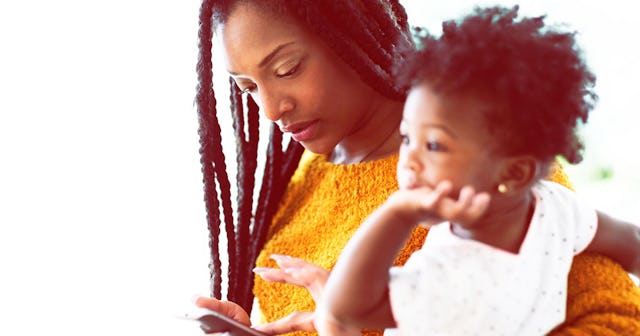I’m Glad I Listened To My Instincts When My Daughter Started Showing Signs of Appendicitis

It started subtly. Benignly. Hours before my daughter’s dance competition, she complained of pain and discomfort. Of a belly ache. She said she was nauseous. She felt like she was going to puke, and her stomach was distended — though she didn’t say the latter, I witnessed it. Her tummy was puffy. There was a small bloat. And after assessing her symptoms, I asked her if she had to use the bathroom. I mean, it seemed like a reasonable assumption. Children never use the bathroom when they need to. Constipation be damned. Plus, after relieving herself, she felt better. Mom one, I thought. Stool zero. But as the evening progressed, and the weekend wore on, there were new complaints.
On Saturday, my daughter told me her hip hurt. She had pain in the front and back of her little body, and on the right side. On Sunday, she complained again, and hours later she was running a low but noticeable fever. 101. She was also lethargic, and not her usual self. And that’s when I knew we were dealing with a beast, not a bowel movement.
“I think she has appendicitis,” I said.
My husband — being the cool, collected one — told me I was exaggerating. “It’s just a stomach bug,” he said. “That’s all.” But I wouldn’t drop it. I wouldn’t stop talking about it, and I wouldn’t let the matter rest because my gut told me otherwise. Because every ounce of my being was pulling me to that diagnosis — and in that direction. Oh, and because WebMD assured me I was right. The symptoms matched. Her case was textbook, through and through, but I tried to stay calm. I tried to stay level-headed. And I retorted, “OK. But if she has one more symptom or feels any worse we are going to the hospital immediately. No questions asked.”
And guess what? We arrived at the hospital at 8:00am. By 8:00pm, she was being wheeled into the OR to have that damn organ removed, all because I listened to myself — and my gut. Because my mama bear intuition was totally in-tune with her body and needs.
Hill Street Studios/Getty
Now they say everyone is intuitive, at least to a certain degree. According to Psychology Today, “intuition is a process that gives us the ability to know something directly without analytic reasoning, bridging the gap between the conscious and non-conscious parts of our mind, and also between instinct and reason.” Or, to put it another way, intuition is a feeling. A guttural reaction. An internal notion, idea, or hunch. Intuition — or instinctive insight — is the unconscious way in which we acquire information. It is visceral. Impulsive. Intuitive thoughts seemingly rise from the abyss, and they consume us quickly. Suddenly. Like a cough or a sneeze.
But what’s the deal with parental intuition, and how does it work? According to Carol Tuttle, host of The Child Whisperer podcast, parental intuition is a gift, one which should not be ignored.
“I feel the greatest guidance tool as a parent is intuition,” Tuttle says. “That sense of knowing this aha, this feeling that you can relate to and say, ‘I know this is correct.’ It’s an inner state of awareness. It’s something that develops the more you trust it.” And it calls to you, if you listen. It can guide you and steer you and help you make decisions, as a person and parent. Intuition leads us, if we are willing to be led.
Of course, how intuition works is something of a mystery. It really is a great unknown. However, Tuttle explains that mothers tend to be more intuitive than fathers, at least historically (and generally) speaking. “I think mothers probably have a stronger sensory mechanism to it than fathers possibly,” Tuttle says. “I think it’s your maternal nature, it’s you’re more… just the way our brains work. [Plus,] we tend to be more emotional… and as a mother, I really learned to trust it. It became an operating skill set for me.”
And award-winning author and mother of three Glennon Doyle agrees. Not only is intuition a skill, it is a valuable trait we can teach our children.
“In ‘Untamed,’ I call it our ‘Knowing,'” Doyle previously told Parents. “Sometimes trusting our ‘Knowing’ as a mother may mean being at odds with the ideas, fears, and concerns of those who love us — even our own mothers.” But listening to our ‘Knowing’ is imperative, for our wellbeing and that of our kids. “As we commit to living as models for our children instead of martyrs, we will eventually raise children who trust themselves, and who live from their own ‘Knowing,’ which, for me, is the most important value we can hand down to our children,” she adds. Trusting our gut is key.
So listen to that voice in your head. Embrace that feeling in your stomach, bones, and body, and trust your gut. Today and everyday.
This article was originally published on